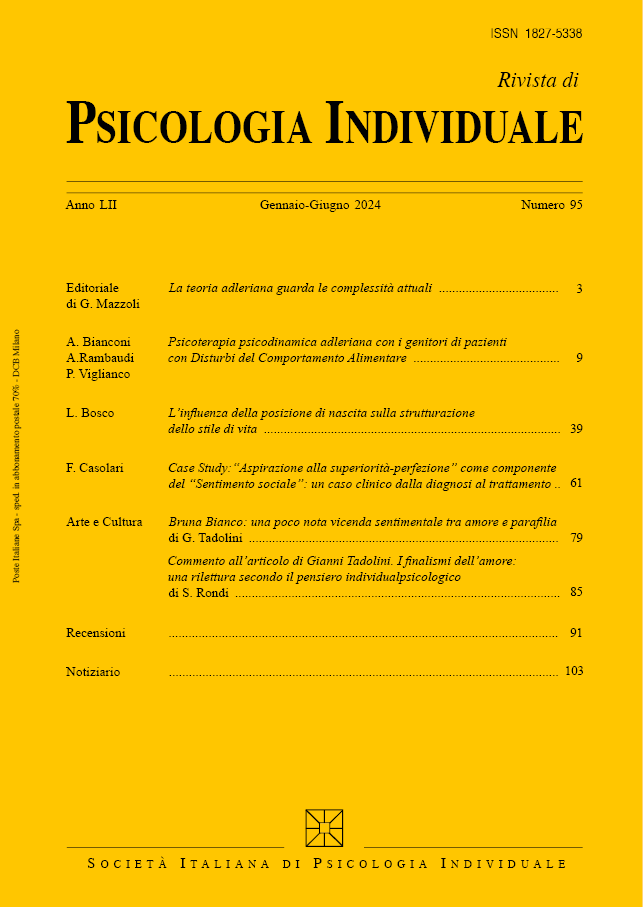Social sentiment and social reintegration in the prevention of psychotic relapses in hospitalized patients
Keywords:
affection, vital tasks, conditioning, mother-child dyad, distance, language, non-analytic transference, cognitive processes, schaffer, hebephrenic-paranoid schizophrenia, feelings of inferiority, will to powerAbstract
To prevent relapses in psychotic patients who are discharged from psychiatric hospitals, discharge must be part of a therapeutic strategy based on an analysis of the patient's personality disorder and personal issues. From an Adlerian perspective, reference should be made to the community feeling, which has a congenital origin (Adler) and develops in the mother-child dyadic relationship (Schaffer) on a predominantly emotional level. However, if the relationship lasts too long, it hinders subsequent social relationships. The community feeling is intertwined with feelings of inferiority and the will to power and is linked to cognitive and language processes, so that its absence in psychotics leads to the creation of private logics and languages that are distant from those commonly used. Prolonged lack of contact with the outside world has a negative conditioning effect on the development of the potential to fulfill the fundamental tasks of existence and increases the subject's distance from society. However, the patient can be encouraged and positively conditioned if the therapist takes into account the narcissistic values of the subject's transference movement. This appears in the second of the two cases presented in detail, in which non-random compensatory factors are linked to delusional themes






